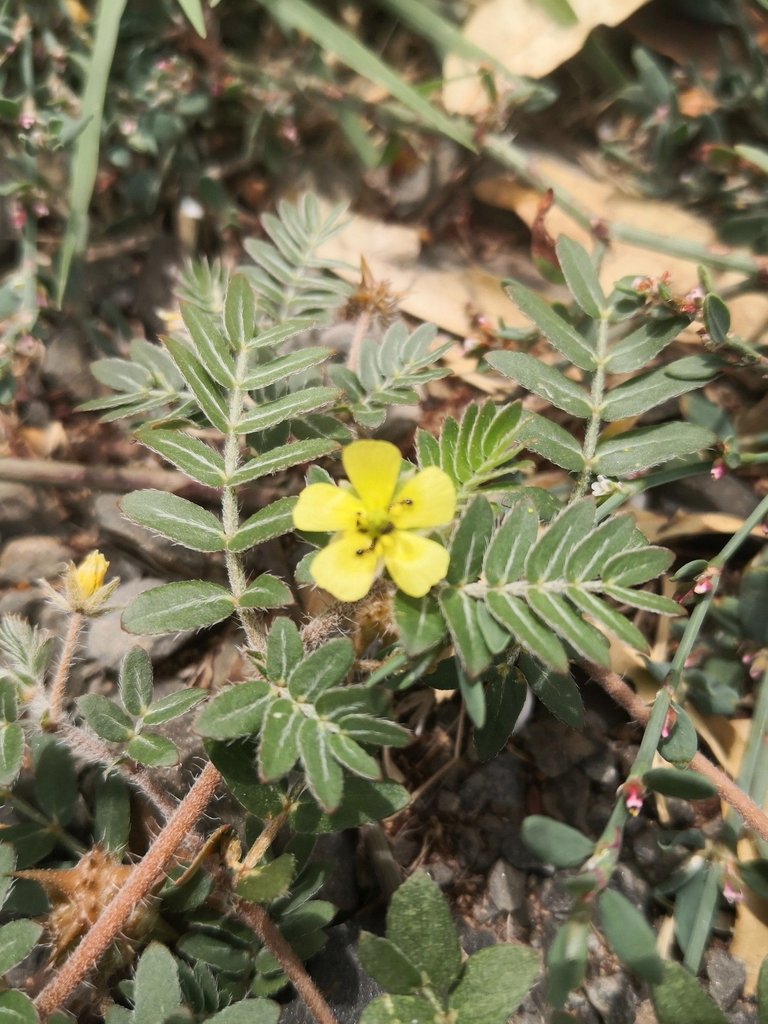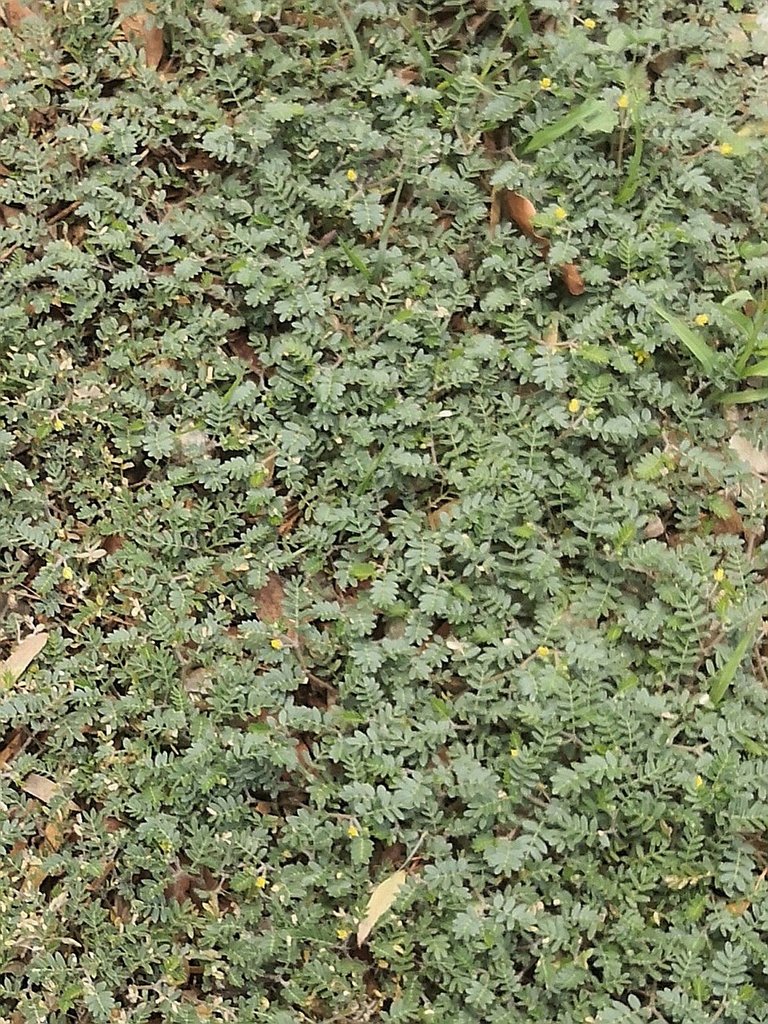
Common names: Caltrop, Calthrop, Bindii, Puncture vine, Nature’s Viagra, Devil’s Thorn, Ci Ji Li, Gokhru
Taxonomic name: Tribulus terrestris
Family: Zygophyllaceae
Related herbs:
Area of origin: Eurasia, North Africa, North America, Australia
Parts used: seed, root
Can be used for: strength, stamina, fertility, improving libido, decreasing blood sugar
Actions: alterative, anthelmintic, , carminative, demulcent, diuretic, fertility aid, aphrodisiac, galactagogue, tonic
Taste: pungent, bitter
Tissue states: wind/heat, damp
Energetics: warming, moving, clearing
Healing constituents: Protodioscin and other steroidal saponins,flavonoids, flavonol glycosides, and alkaloids, nitrates, an essential oil
Warnings: Take care when harvesting, they’re spiky!
Description
Prostate, mat forming herb with opposite, pinnate leaves. Yellow flowers with 5 petals, borne singly in jeaf junctions. Spiny green hard fruit that go brown when dry are the distinguishing feature/ especially when they’re stuck in your foot!
Medicinal use
Caltrop is the bane of walkers and cyclists but a boon for athletes. To some, Caltrop (Tribulus terrestris) is an evil plant but to me, it has a perverse beauty. It is named ‘Caltrop’ after a wicked, old timey, military device that pierced the shoes and feet of horses and men, rendering them unable to do battle. If you have ever stepped on one of these plants, you will know why. Its woody fruit is the bane of children and cyclists in Summer as the thorns on the fruit can puncture bike tyres! It’s called ‘puncture vine’ for just that reason.

If we look at its overall form though, we can see beauty in its functional simplicity. Caltrop grows best on dry, exposed soil. It’s shallow root system takes advantage of small amounts of soil moisture and its spreading form covers and protects that soil. The thorny seed cases deter creatures from walking on it. Caltrop is a spiky band aid for degraded soil!
But what about herbally?
I’ll be honest, I’ve not tried all of the herbal possibilities of this plant but I’m determined to find a use for everything around us, so I’ve collated this post of possibilities and tried to put together a picture of how it works. I can say however that it does work balancing out one’s libido.
The main active constituent is Protodioscin (a steroidal saponins) and it seems that this and the other saponins work to bring its healing benefits. Through them, Caltrop is able to balance our endocrine system by stimulating hormone secretion. It has special affinity for the reproductive system in both men and women and can increase both libido and fertility. For men, it can increase sperm count, blood flow to the penis and testes and prolong erection. For women, it can increase progesterone secretion and reduce oestrogen, leading to a more balanced set of reproductive hormones.
Tribulus also helps stimulate the liver which leads to better metabolism and a general improvement in energy. It helps the breakdown of fats to essential fatty acids. These fatty acids are used as the building blocks of and for transportation of hormones. In this way, it can be used with Purslane, another Summer plant with a high level of Essential Fatty Acids.
Tribulus has a reputation for providing anabolic type steroids to athletes. Clinical research doesn’t support this, though the myriad of other effects it has on our body point to a general improvement is stamina and strength that could help bodybuilders exercise better and thus put on more muscle mass and gain strength.
Tribulus has been indicated for constriction in the chest and many forms of itchiness, especially around the eyes and in hands and feet.
In summary, it is the improved balance of hormones that Tribulus brings yields a general improvement in the health of mind and body.

Preparing and using Caltrop
Most of the beneficial compounds in Caltrop are water soluble, so an infusion or decoction of the seeds is the best way to go. Alcohol isn’t necessary to get the goodies out but can be added to preserve your remedy.
I’ve heard of ash from the whole plant being used in cases of rheumatoid arthritis but haven’t followed up on that yet.
Some of you may have seen that I've been writing a series of posts about herbs and making herbal remedies at home. I want to share what I know of this topic so that, as the world gets crazier, folks will have other avenues of medical care, namely those of themselves and their community. If you look back over this blog, you can see heaps of info on the topic, plus loads and loads of posts on herbs and using Australian bushfoods from a white perspective. If you haven't been around on in the @hivegarden and @naturalmedicine communities for long, you may be interested in looking back. There's w-a-a-a-a-y too much there for me to repost and the Hive system doesn't let you vote on old posts so, if you're happy with what you find, I believe that there is now a tip option...






